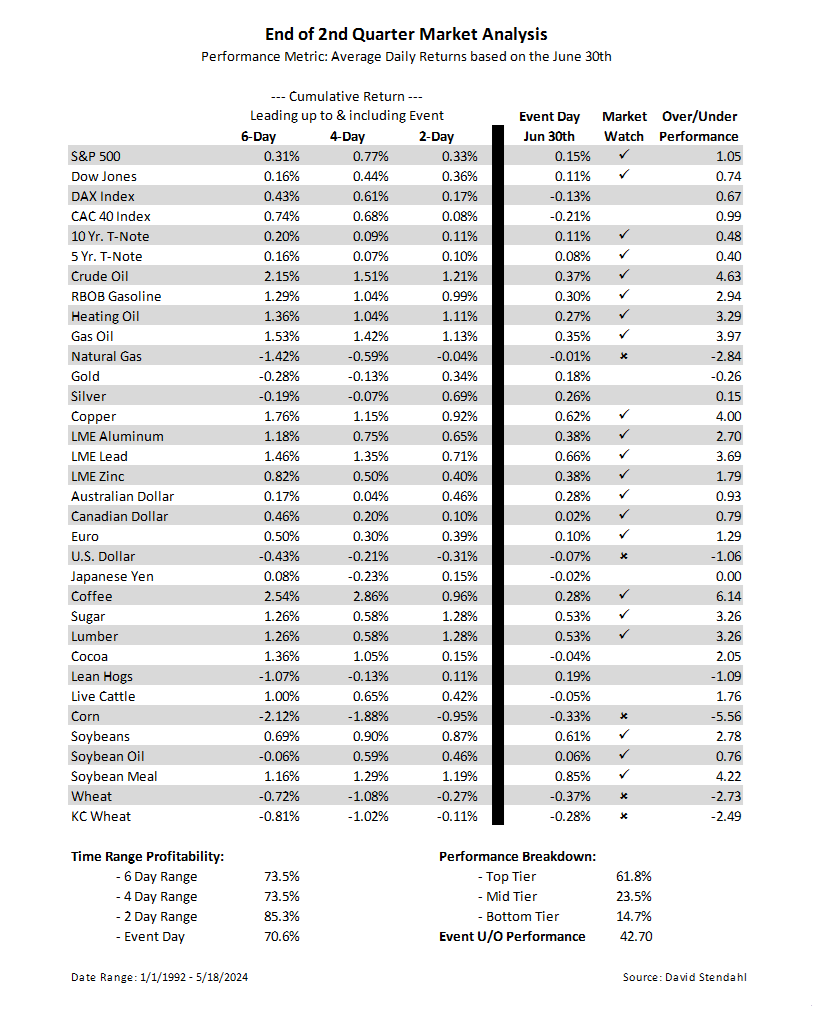Event: 2nd Quarter End
The calendar year is divided into four fiscal quarters, which end in March, June, September, and December. At the end of each quarter, it is not unusual to see hedge funds, pension funds, and insurance companies rebalance their portfolios. This may involve liquidating high-performing assets with low-performing assets, thereby protecting portfolios from extreme moves. Basically, it allows portfolio managers to normalize positions on a regular interval in an effort to minimize volatility. Of course, not all portfolio managers adhere to the end of the fiscal quarters. In reality, they should perform the rebalancing of positions when necessary and not at set quarter-end dates. Let’s crunch some numbers and see what really happens heading into the end of the second quarter based on 30+ years of data.
The questions is … with summer heating up do the markets end the fiscal second quarter on a positive or negative note?
Market Comparision
How do the markets perform leading up to and including the end of the 2nd quarter on June 30th? The analysis table below breaks down each of the 30+ markets into four separate trading periods. These time frames span 6-days, 4-day, 2-days, and the event day itself. The return performance for each time frame is measured against its normal performance during the year to calculate a final over or underperformance return. This metric quantifies, in percentage points, the advantages or disadvantages associated with the end of the 2nd quarter. Markets highlighted with a checkmark or an “x” should be closely monitored for potential strength or weakness heading into the event.

Calendar Breakdown by Events
All trading involves risk. Leveraged trading has large potential rewards, but also large potential risk. You must be aware of the risks and be willing to accept them in order to invest in the futures and options markets. Don’t trade with money you can’t afford to lose. This is neither a solicitation nor an offer to Buy/Sell futures or options. No representation is being made that any account will or is likely to achieve profits or losses similar to those discussed. The past performance of any trading system or methodology is not necessarily indicative of future results.
Our strategies have not been developed based on knowledge of or with reference to your particular circumstances, such as financial position, goals, risk-reward preferences, tax situation, brokerage arrangement, investment or trading experience, and so forth. Hence no content or model published here constitutes a recommendation that any particular security, portfolio of securities, transaction, or investment strategy is suitable for any specific person. You alone are solely responsible for determining whether any investment, security or strategy, or any other product or service, is appropriate or suitable for you based on your investment objectives and personal financial situation. More
